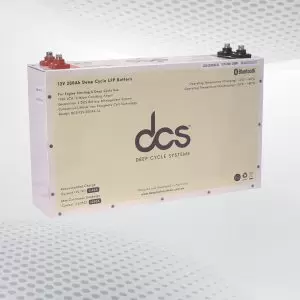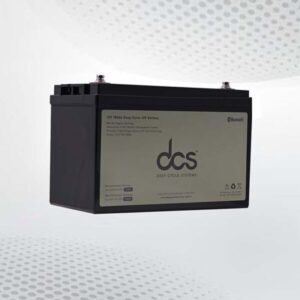In the ever-evolving landscape of automotive technology, different types of car batteries significantly influence vehicle performance and sustainability. Traditional lead-acid batteries have dominated the market for many years, providing a reliable yet somewhat limited vehicle power source. Conversely, Li ion car battery have brought numerous advancements. These modern batteries offer many benefits that are rapidly gaining importance in today’s automotive industry. Factors such as higher energy density, reduced weight, and lower maintenance needs highlight the advancements in lithium technology. Each battery type has distinct characteristics and applications, crucial for understanding the potential benefits and drawbacks of upgrading to a lithium-ion car battery.
Energy Density Considerations
A key advantage of Li-ion batteries is their substantially higher energy density. This allows for more energy to be stored in a smaller, more compact unit than traditional batteries. The result is that electric vehicles equipped with Li-ion batteries can travel longer distances on a single charge. This higher energy capacity translates into increased efficiency and fewer interruptions for recharging, making it a practical choice for long-distance driving. This increased energy density also supports the growing demand for more powerful, longer-lasting electric vehicle batteries, enhancing the overall driving experience.
Dimensions and Weight
The physical characteristics of lithium batteries offer notable advantages in vehicle efficiency and performance. Being lighter, these batteries reduce the vehicle’s overall weight, improving acceleration and handling. This weight reduction contributes to better fuel economy for hybrid vehicles and extends the driving range for electric vehicles. Furthermore, the compact design of lithium batteries allows manufacturers more flexibility in vehicle design, enabling them to optimise space for other components or passenger comfort. This adaptability is particularly beneficial in developing electric vehicles, where space can be at a premium. The streamlined size and reduced mass of li-ion batteries significantly improve over traditional lead-acid batteries, providing practical benefits for modern automotive applications.
Charging Speeds
Li-ion batteries distinguish themselves with significantly faster charging times, a feature that enhances the practicality of electric vehicles for everyday use. This efficiency in charging means reduced waiting periods and more time spent on the road, addressing a common concern among electric vehicle users. Faster charging times also facilitate quicker turnarounds for fleet vehicles, potentially improving operational efficiency. The ability to rapidly recharge improves user convenience. It supports the broader adoption of electric vehicles by making them more competitive with traditional fuel-based vehicles regarding refuelling time. This advancement in charging technology is a key factor driving the shift towards lithium batteries in the automotive sector.
Long-Term Financial Benefits of Lithium Starting Battery
Lithium starting batteries provide significant long-term financial advantages despite their higher initial cost. Their longevity is one of the key factors that contribute to these savings. Unlike traditional batteries, which may need to be replaced every few years, lithium batteries can last much longer, reducing the frequency of replacements and saving owners money. This longer lifespan makes them a more economical option regarding a vehicle’s overall operational costs.
Another benefit is the reduced maintenance requirements. Lithium-starting batteries are designed to require less upkeep than their counterparts, which means fewer resources and time are needed to keep them functioning properly. These batteries are more efficient and less prone to issues such as corrosion or fluid loss, which can lead to costly repairs. This makes lithium-starting battery technology an attractive option for vehicle owners who want to avoid frequent maintenance expenses.
Finally, lithium batteries are known for their consistent performance. Their durability ensures that the vehicle’s electrical system operates smoothly without interruptions caused by battery failure. This reliability prevents costly breakdowns and reduces the need for emergency repairs, providing further financial benefits over time. With their efficiency, low maintenance, and longevity combination, lithium starting battery are ideal for long-term savings.
Maintenance Demands
Li-ion car batteries require different maintenance strategies than traditional batteries, offering a more efficient and durable option.
Extended Lifespan with Proper Care
Li-ion batteries generally last longer than traditional lead-acid batteries. They can function for several years without significant degradation with minimal maintenance, provided they are kept within optimal temperature ranges.
Regular Charging and Discharging for Optimal Performance
Li-ion batteries perform best when kept within a moderate charge range. Unlike traditional batteries, frequent partial charges (rather than full discharges) help extend their longevity.
Minimal Maintenance Needs
Li-ion batteries require far less routine upkeep than their traditional counterparts. Traditional lead-acid batteries often need to be checked for fluid levels and corrosion, while Li-ion batteries have sealed designs that require less frequent attention.
Temperature Sensitivity Considerations
Temperature extremes can affect the performance of both types of batteries. However, Li-ion batteries are more sensitive to heat, and consistent monitoring of vehicle climate conditions is essential for maximising battery life.
Monitoring and Diagnostic Tools
Modern vehicles equipped with Li-ion batteries have advanced monitoring systems that alert owners about potential issues. These systems reduce the risk of neglecting important maintenance tasks, offering a level of convenience not typically available with traditional batteries.
Lifespan of Battery Cycles
Li-ion batteries are recognised for their remarkable endurance in terms of battery cycles. They can withstand significantly higher charge and discharge cycles than traditional batteries before experiencing notable performance degradation. This resilience ensures that lithium batteries provide consistent power output over extended periods, making them a durable choice for modern vehicles. The longer battery cycle lifespan reduces the frequency of replacements, which is advantageous for the environment and cost management. This longevity is a testament to the advanced engineering behind li-ion technology, offering a reliable power source that can meet the demands of contemporary automotive applications.
Longevity of Lithium Cranking Batteries Compared to Lead-Acid
Lithium-cranking batteries have revolutionised the automotive industry, offering significant advantages over traditional lead-acid batteries. They are renowned for their exceptional durability and reliability, even in challenging conditions. This ensures that vehicles experience fewer unexpected power failures, which is especially important in critical situations where consistent performance is essential.
The robust nature of lithium-cranking batteries makes them ideal for high-demand applications, such as powering vehicle engines in cold weather or other extreme environments. These batteries maintain optimal performance, reducing the risk of sudden breakdowns. Their longer lifespan further enhances their value, lowering the frequency of replacements. This contributes to overall cost savings and less environmental impact due to fewer discarded batteries.
Another major benefit of lithium cranking batteries is their consistent power output. Unlike lead-acid batteries, which may lose efficiency over time, lithium-cranking batteries continue to deliver reliable power. This makes them attractive for individuals who depend on their vehicles for daily commutes or professional tasks. With their superior technology and growing adoption, lithium-cranking batteries are an indispensable asset in modern automotive applications.
Environmental Considerations
Li-ion batteries offer distinct environmental benefits over traditional batteries. They produce fewer emissions during manufacturing, contributing less to air pollution. Their design and composition also facilitate easier recycling, reducing the environmental impact associated with battery disposal. The materials used in lithium batteries are less harmful, thereby posing a lower risk of soil and water contamination. Additionally, the extended lifespan of lithium batteries means fewer replacements, which translates to less waste. These characteristics align well with the growing emphasis on sustainable practices within the automotive industry, making lithium batteries an increasingly attractive option for eco-conscious vehicle manufacturers and users.
Financial Implications
The long-term financial benefits of lithium batteries become apparent when considering their efficiency and durability. Although they are more expensive initially, their extended lifespan means fewer replacements are needed, lowering overall costs. The superior efficiency of lithium batteries also translates into better fuel economy for hybrid vehicles and longer driving ranges for electric vehicles, resulting in further cost savings over time. Reduced maintenance requirements add to the financial advantages, as less time and money are spent on upkeep. This makes Li-ion batteries a cost-effective option for vehicle owners looking to maximise their investment in automotive technology.
Safety Concerns
Li-ion batteries have undergone significant advancements in safety technology. Modern iterations incorporate built-in safety mechanisms that minimise risks associated with overheating and short-circuiting. These safety measures are essential in preventing incidents that could lead to battery failure or potential hazards. Lithium batteries offer a more secure and reliable alternative than traditional lead-acid batteries, which can suffer from issues such as leakage and corrosion. Integrating these advanced safety features ensures that lithium batteries are well-suited for contemporary automotive applications, providing both efficiency and peace of mind.
Performance under Extreme Conditions
Li-ion batteries exhibit exceptional resilience across various temperature extremes, outperforming traditional batteries that often falter. Traditional batteries may experience reduced capacity and difficulty starting engines in cold climates. In contrast, Li-ion batteries maintain performance, ensuring reliable power delivery even in freezing temperatures. This makes them particularly advantageous in regions with harsh winters. Similarly, in high-temperature environments, li-ion batteries demonstrate stability and efficiency, avoiding the common issues of overheating and degradation faced by lead-acid batteries. The advanced design and materials used in lithium batteries enable them to function efficiently without significant loss of capacity, ensuring consistent performance regardless of external conditions. This reliability makes them well-suited for vehicles operating in various environmental settings.
Technological Progressions
The evolution of lithium batteries has been marked by continuous advancements in technology, driven by the demand for more efficient and powerful energy solutions in the automotive sector. Recent innovations have focused on increasing energy density, enabling electric vehicles to travel longer distances on a single charge. Additionally, advancements in thermal management have led to the development of batteries that operate more efficiently under extreme temperatures, mitigating performance issues associated with high and low-temperature environments. Research and development efforts are also directed towards improving the speed of energy transfer, resulting in faster charging times. This progress is crucial for making electric vehicles more convenient for everyday use, reducing downtime and enhancing overall user experience.
Conclusion
Upgrading to Li-Ion car batteries offers significant advantages over traditional lead-acid batteries. Li-Ion batteries are lighter, more energy-efficient, and last longer, reducing the frequency of replacements and overall maintenance costs. They charge faster and perform better in extreme weather conditions, making them a reliable choice for modern vehicles. The environmental impact is also reduced, as Li-Ion batteries contain fewer toxic materials and are more easily recyclable. While the initial investment may be higher, the long-term savings, performance enhancements, and eco-friendly benefits make Li Ion car battery a smart upgrade for any vehicle owner.
FAQ’s
What are the key differences between Li-Ion and traditional car batteries?
Li-ion batteries are lighter, more efficient, and have a longer lifespan than traditional lead-acid batteries. They offer faster charging times and better performance in extreme temperatures, while traditional batteries tend to lose charge more quickly in hot or cold weather.
Are Li-Ion car batteries more expensive than traditional batteries?
Yes, Li-Ion car batteries tend to be more expensive upfront. However, their extended lifespan and reduced maintenance costs over time make them a more cost-effective option in the long run.
How long do Li Ion car battery last?
Li Ion car battery generally last 8 to 10 years, depending on the vehicle’s usage and the battery’s quality. This is significantly longer than a traditional lead-acid battery’s typical 3 to 5 years.
Are Li-Ion car batteries better for the environment?
Yes, Li-Ion batteries are more eco-friendly as they contain fewer toxic materials, are lighter, and can be recycled more efficiently than traditional lead-acid batteries, which contain lead and sulfuric acid.
Do Li-Ion batteries require special maintenance?
Li-Ion batteries require minimal maintenance. They do not need to be regularly checked for fluid levels like traditional lead-acid batteries. However, it’s essential to ensure they are properly installed and occasionally checked for signs of wear, especially in extreme temperatures.




